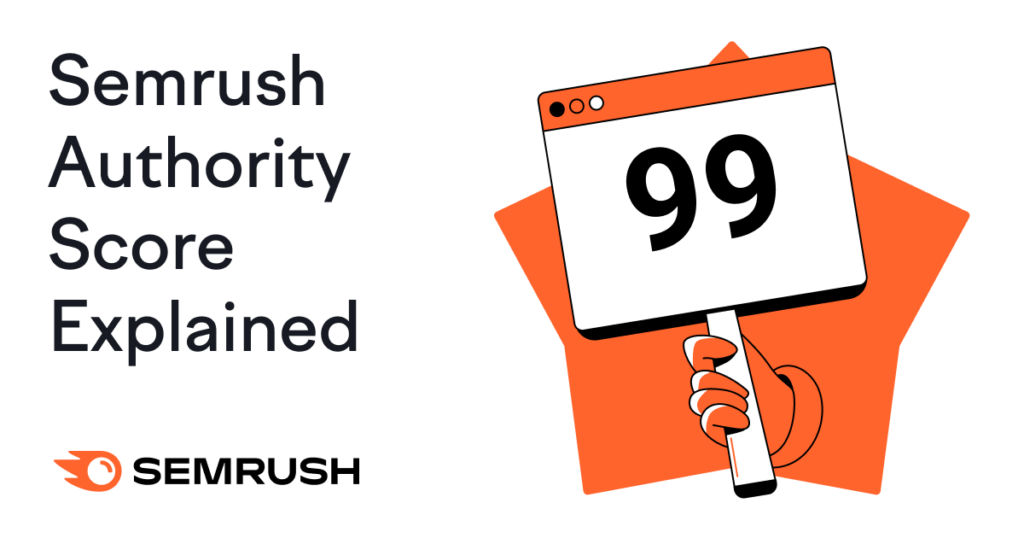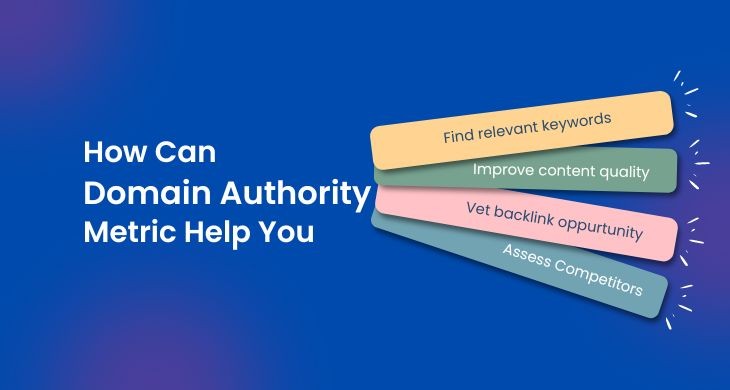
What is domain authority? – Is It worth working on for SEO?
In the real day, The term “Domain Authority” has become an expression among owners of websites and SEO supporters in the ever-changing landscape of digital marketing.
But what is Domain Authority, and is it truly worth the effort to improve the SEO performance of your website? When significant players completely support an index, it becomes more than just a number; it becomes an effective instrument for determining online authority.
In this extensive text, we will dive into the complicated subject of Domain Authority, studying its significance, the factors that impact it, and practical tips for improving it.
Table of Contents
ToggleWhat is Domain Authority? – Shortage Review!
Domain Authority, simplified as DA, is a Moz metric that measures a website’s possibility of ranking on search engine result pages (SERPs).

It has a scale of 0 to 100, with higher scores announcing a greater ability to rank. While it is not a direct factor in Google’s algorithm, it is a useful comparison to determine a site’s SEO potential.
How Can I Check My Site’s Domain Authority? – Let’s Investigate!
- Moz: Moz provides a simple tool for determining your website’s Domain Authority. Simply enter your domain, and Moz will generate a score as well as insights into your backlink profile, allowing you to better understand your site’s SEO position.
- SEMrush: A different SEO powerhouse, offering a comprehensive fit of tools. Its Domain Overview tool not only displays your DA but also provides helpful information about your organic search traffic and the competition.
- Ahrefs: It is well-known for backlink analysis, and its Domain Rating (DR) is comparable to Moz’s Domain Authority. It provides a comprehensive view of your site’s backlink strength, working with you in optimizing your SEO strategy.

How Does Domain Authority Work? – Cracking the Code!
Domain Authority takes into account a wide range of factors, with backlinks playing an important role. Quality and quantity are important; having trusted websites link to yours increases your DA. A different and relevant backlink profile also supports a high Domain Authority.
Supports Domain Authority as a Metric – Briefly Explain!
- Domain Authority is considered a reliable metric by industry leaders. Marketers and SEO professionals commonly employ it to evaluate the digital strength of a website. Its use as an example shows its significance in the highly competitive environment of online visibility.
- As a vital part of the SEO toolkit, domain authority provides a common language for professionals to discuss and examine website strength. It is a go-to metric for decision-makers due to its compatibility with industry best practices and ability to combine complex factors into an absorbed score.
- If you’re improving your digital strategy or comparing your site to the competition, Domain Authority acts as a reliable guide, directing you toward more exposure and success in the ever-competitive digital landscape.
Note: Consider Domain Authority to be more than a metric; consider it a partner in your search for online excellence.
What Role Does Domain Authority Play in SEO – Let’s Find Out!
Better Ranking:
A high Domain Authority helps to improve rankings. While not a guarantee, it increases your chances of landing a desired position on the first page of search results, increasing the visibility of your site.

Good SEO work Parameter:
Domain Authority is a measure of success for your SEO efforts. It indicates the success of your strategies, guiding you in optimizing your approach to match search engine algorithms and consumer demands.
Good Comparison Basis:
A valuable comparison can be obtained by comparing your site’s Domain Authority to that of competitors. It helps in determining areas for improvement, allowing you to modify your SEO strategy for a competitive advantage.
Other Factors That Impact Domain Authority – Review!
Apart from backlinks, content quality, site structure, and user experience, all have an impact on Domain Authority. Making sure that your website follows SEO best practices in all of these areas improves your overall online presence.
While backlinks are important in determining Domain Authority, a complete approach to SEO takes into account a variety of factors that collectively affect a website’s digital standing.

- Quality content: Engaging, relevant, and well-structured content not only benefits your audience but also indicates to search engines that your site is a reliable source of information. Make an investment in content that answers user questions, naturally includes relevant keywords, and determines your authority in your niche.
- Site Organization: A site structure that is well-organized and user-friendly provides a positive user experience. This includes simple navigation, logically structured pages, and a user-friendly design. A soft user experience supports visitors to explore more, decreasing bounce rates and communication to search engines that your site is user-focused.
- User Experience (UX): In addition to site structure, the overall user experience is important. A positive UX is helped by fast-loading pages, mobile flexibility, and simple navigation. Search engines support sites that provide a smooth and enjoyable user experience, which affects your Domain Authority.
- On-Page Seo: Optimizing on-page elements like meta tags, headers, and images helps your site’s overall health. Following SEO best practices ensures that search engines understand your content easily, increasing your chances of ranking well and improving your Domain Authority.
- Social Signals: Although not a direct ranking factor, social signals from platforms such as Facebook, Twitter, and LinkedIn may affect the authority of your site. Content that is popular on social media could attract more attention, leading to increased visibility and possibly more backlinks, which will over time contribute to your Domain Authority.
Including these elements in your SEO strategy results in a complete strategy that exceeds the standard focus on backlinks.
By addressing content quality, site structure, user experience, on-page SEO, and social signals, you build a digital community that not only appeals to search engines but also improves your overall online presence and, as a result, Domain Authority.
FAQs:
1. How to Find Your Domain Authority Score?
Use Moz, Semrush, or Ahrefs to determine your Domain Authority score. Enter your domain, and these tools will provide a detailed analysis, including your DA score and insights into the SEO health of your site.
2. How Do Backlinks Affect Domain Authority?
Backlinks are extremely important for Domain Authority. Backlinks from trusted sources increase your DA, indicating to search engines that your content is valuable and dependable.
3. Why Did My Domain Authority Change?
Domain Authority does not remain unchanging; it changes based on a variety of factors. Changes in your site’s backlink profile, content quality, or simply shifts in the marketplace may result in changes.
Conclusion:
Domain Authority serves as a guiding measurement in the dynamic world of SEO, providing data on your website’s possibility of success.
In this extensive text, we will dive into the complicated subject of Domain Authority, studying its significance, the factors that impact it, and practical tips for improving it.
You May Also Like

Half Of A 1990s-2000s Rock Duo With Six Grammys – In 2024!
January 31, 2024
Vanessa West.Tripod – A Visual Journey!
January 1, 2024

